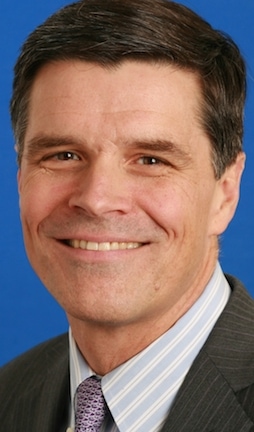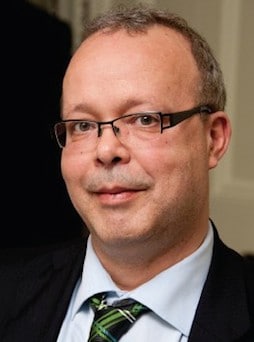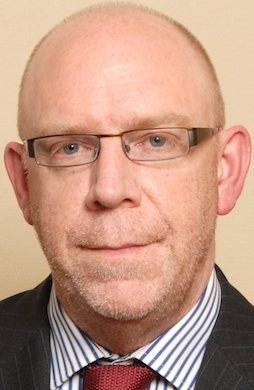THE BIG SQUEEZE
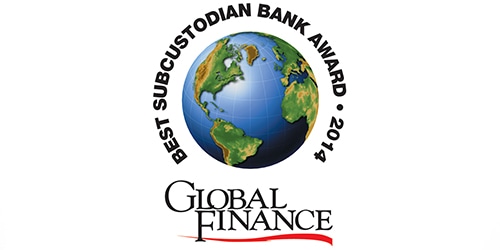
Global Finance presents the winners of its annual World’s Best Subcustodian awards.

Subcustodians are being pressured by declining margins and low interest rates at the same time they are trying to cope with an onslaught of new regulatory requirements. For those with the skill and the wherewithal to meet the challenges, however, the business of protecting and servicing client assets remains profitable. Global investing is expected to continue to increase in the future.
No fewer than 40 regulatory initiatives—the majority of them in Europe—will affect the industry directly or indirectly. Investors in emerging markets in Asia and Africa are also affected by the shifting global regulatory environment, and these international investors are looking to their subcustodians for assistance in meeting global requirements. In addition, each market has its own regulatory environment and, in many cases, restrictions on currency and capital flows. Subcustodians need to understand, explain and help clients cope with the changing rulebook.
To be successful, subcustodians must be compensated for the risks they are managing on behalf of their clients. Unbundled services and separate pricing are becoming more common. Some subcustodians are coping with thin margins by investing in more-efficient technology and capturing growing market shares by increasing geographic scope. Others are adding new products and integrating back-office and even middle-office processes for their customers. Moving up the value chain has become necessary for survival.
In our 12th annual survey of the World’s Best Subcustodians, Global Finance selects the institutions that reliably provide the best asset servicing and protection in 83 countries and nine regions of the world. Our editors and reporters, with input from expert sources, chose the winners based on a series of objective and subjective criteria that include customer relations, quality of service, competitive pricing, smooth handling of exception items, technology platforms, post-settlement operations, backup systems and knowledge of local regulations and practices.
We also considered market share, commitment to the business, experience and number of staff, innovation, direct links to depositories, financial soundness and safety, and range of assets serviced.
REGIONAL WINNERS
|
|
|---|---|
|
North America |
Citi |
|
Western Europe |
BNP Paribas |
|
Nordic Region |
SEB |
|
Central & Eastern Europe |
UniCredit |
|
Latin America |
Citi |
|
Caribbean |
Scotiabank |
|
Asia-Pacific |
HSBC |
|
Middle East |
HSBC |
|
Africa |
Standard Bank |
|
COUNTRY WINNERS |
|
|---|---|
|
Argentina |
Citi |
|
Armenia |
Ameriabank |
|
Australia |
National Australia Bank |
|
Austria |
UniCredit Bank Austria |
|
Bahrain |
HSBC |
|
Belgium |
Citi |
|
Brazil |
Itaú Unibanco |
|
Bulgaria |
UniCredit Bulbank |
|
Canada |
CIBC Mellon |
|
Chile |
Banco de Chile |
|
China |
Industrial and Commercial |
|
Colombia |
Citi |
|
Croatia |
Société Générale–Splitska banka |
|
Cyprus |
Bank of Cyprus |
|
Czech Republic |
UniCredit Bank |
|
Denmark |
SEB |
|
Egypt |
Commercial International Bank |
|
Estonia |
SEB Pank |
|
Finland |
Nordea |
|
France |
BNP Paribas |
|
Georgia |
Bank of Georgia |
|
Germany |
Deutsche Bank |
|
Ghana |
Standard Chartered Bank Ghana |
|
Greece |
Eurobank |
|
Hong Kong |
HSBC |
|
Hungary |
UniCredit Bank Hungary |
|
Iceland |
Íslandsbanki |
|
India |
Standard Chartered Bank India |
|
Indonesia |
Standard Chartered Bank Indonesia |
|
Ireland |
HSBC |
|
Israel |
Bank Leumi |
|
Italy |
Intesa Sanpaolo |
|
Japan |
Mizuho |
|
Jordan |
HSBC |
|
Kazakhstan |
HSBC |
|
Kenya |
Standard Chartered Bank Kenya |
|
Kuwait |
HSBC |
|
Latvia |
SEB banka |
|
Lebanon |
HSBC |
|
Lithuania |
SEB bankas |
|
Luxembourg |
BNP Paribas |
|
Malaysia |
HSBC |
|
Mauritius |
HSBC |
|
Mexico |
BBVA Bancomer |
|
Mongolia |
BNP Paribas |
|
Morocco |
BMCI |
|
Mozambique |
Standard Bank Mozambique |
|
Namibia |
Standard Bank Namibia |
|
Netherlands |
BNP Paribas |
|
New Zealand |
National Australia Bank |
|
Nigeria |
Stanbic IBTC Bank |
|
Norway |
Nordea |
|
Oman |
HSBC |
|
Pakistan |
Deutsche Bank |
|
Paraguay |
Banco Itaú Paraguay |
|
Peru |
Citi |
|
Philippines |
HSBC |
|
Poland |
Bank Pekao |
|
Portugal |
Banco Espírito Santo |
|
Qatar |
HSBC |
|
Romania |
Société Générale |
|
Russia |
Société Générale Securities Services Russia (Rosbank) |
|
Saudi Arabia |
HSBC Saudi Arabia |
|
Serbia |
UniCredit Bank Srbija |
|
Singapore |
DBS Bank |
|
Slovakia |
SOB |
|
Slovenia |
UniCredit Banka Slovenija |
|
South Africa |
Nedbank |
|
South Korea |
Korea Exchange Bank |
|
Spain |
BBVA |
|
Sri Lanka |
Citi |
|
Sweden |
SEB |
|
Switzerland |
Credit Suisse |
|
Taiwan |
Standard Chartered Bank Taiwan |
|
Thailand |
Bangkok Bank |
|
Turkey |
TEB |
|
UAE |
HSBC |
|
Ukraine |
Ukrsotsbank |
|
United Kingdom |
HSBC |
|
United States |
Citi |
|
Uruguay |
Itaú Unibanco |
|
Venezuela |
Citi |
|
Vietnam |
HSBC |
REGIONAL WINNERS
Citi Direct Custody and Clearing has the largest proprietary network in the industry, covering 62 markets worldwide. The most recent country added was Bulgaria, which was included in Citi’s purchase of ING’s custody assets in Central and Eastern Europe.
Lee Waite, global head of direct custody and clearing at Citi, says: “On a relative scale, Citi’s custody business is doing very well. Pricing pressures and expenditures to keep current with new regulations are a drain on resources. However, because of the size of Citi’s footprint, we can spread out that investment globally.”
As Europe moves toward Target2-Securities, or T2S, a common settlement platform, subcustodians will lose settlement revenue, Waite says. But implementation of the new system will be drawn out over three years, and there is a silver lining, he adds. “If harmonized settlement makes it easier and cheaper to invest in Europe, trading volumes should increase,” Waite says. Citi is continuing to expand its account operator and third-party clearing services, where allowed by regulators.
WESTERN EUROPE
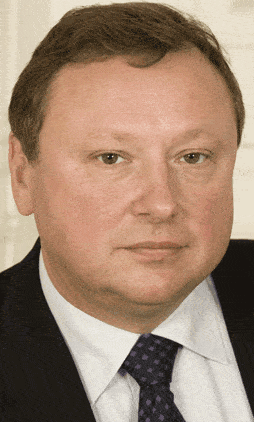
BNP Paribas: www.bnpparibas.com
BNP Paribas Securities Services offers local custody and clearing services in 26 markets, including most of Europe, and has more than $8 trillion of assets under custody. Its asset and fund services unit recently introduced an Alternative Investment Fund Managers Directive depositary banking service for asset managers distributing non-European alternative investment funds in Europe. The service aims to help these asset managers comply with the AIFMD. BNP Paribas holds about $1.3 trillion of assets as a depositary across 12 fund domiciles in Europe.
Alain Pochet, global head of clearing, settlement and custody, BNP Securities Services, says: “Our European clients face a raft of changes, including the implementation of T2S, which will be transformational for the industry. We are working to provide them with all the flexibility they need to connect to the platform, while continuing to deliver first-class asset servicing.”
SEB is a strong provider of subcustody services in the four Nordic countries—Sweden, Norway, Finland and Denmark. The bank has a 65% share of the market in Sweden and a 40% share in the Nordic region as a whole. It also has a leading market share in the Baltic countries and is active in Russia and Ukraine.
Ulf Norén, global head of subcustody at SEB, says: “We have a single custody system covering all of the Nordic markets, which is supported by our operations unit in Riga, Latvia. We went further than our competitors in offshoring, and we have the capability to handle peaks in volume in any of our markets.”
SEB is the leading corporate and investment bank in the Nordic region. “SEB’s vision is to remain the obvious choice and thought leader for Nordic custody, cash and fund services businesses,” Norén says.
CENTRAL AND EASTERN EUROPE
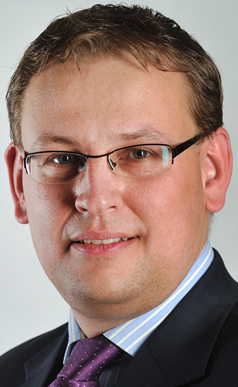
UniCredit: www.unicreditgroup.eu
UniCredit’s leading subcustody network in Central and Eastern Europe covers 13 markets. The bank provides securities services through local subsidiaries, which are majority-owned by UniCredit Bank Austria, with the exception of Bank Pekao in Poland, which is directly owned by UniCredit.
UniCredit offers a single point of entry to its CEE securities services through its Vienna hub but has a direct presence in all of its markets through full-scale universal banks. It is one of the top two subcustodians in each of its CEE markets except Russia.
Tomasz Grajewski, head of global securities services at UniCredit, says: “This award is recognition of our client service across the region. Thus, we are even more encouraged to further improve our service by investing in our people and our systems.”
LATIN AMERICA
Citi: www.citigroup.com
Citi is the leading subcustodian in Latin America, covering the nine largest markets in the region. The bank also leads in the introduction of exchange-traded funds (ETFs) in the region. In Brazil, Citi supported the launch of two new ETFs tracking a carbon-efficiency index and public utilities.
In Argentina and Peru, Citi accounts for 95% of the market in custody services for foreign investors, such as global custodians and international broker-dealers. It is also the largest provider of custody services to foreign investors in Colombia, with an 85% market share. In Venezuela, where Citi has been providing custody and clearing services since 1990, the bank’s market share is 75%. Throughout Latin America, Citi had more than $517 billion of assets under custody at the end of last year.
CARIBBEAN
Scotiabank: www.scotiabank.com
Scotiabank, Canada’s leading international bank, has 370 branches in 23 countries in the Caribbean. The bank offers SWIFT coverage throughout the region. Five Continents Financial, a member of the Scotiabank group in the Cayman Islands, provides asset management and custody services. Scotiabank & Trust (Cayman) manages the bank’s mutual funds. In Jamaica, Scotia Investments, a local stock brokerage, has recorded strong growth in funds under management despite a weak economy.
ASIA-PACIFIC
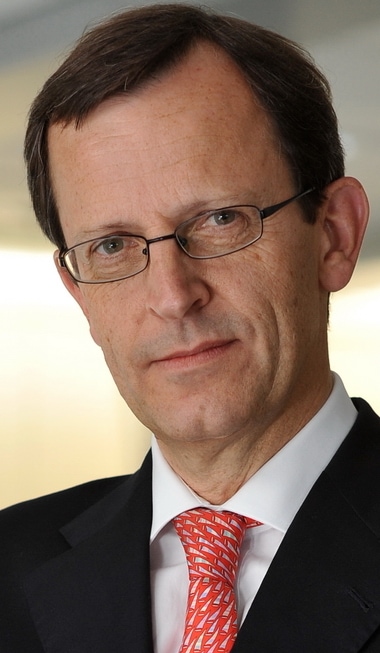
HSBC: www.hsbc.com
Despite challenges on margins and low interest rates in most of the 38 markets where it operates, including 17 in Asia, HSBC continues to invest heavily in its subcustody business. The bank had record securities transaction volumes and record assets under custody last year, and it has continued to set new monthly records in 2014. Colin Brooks, global head of subcustody and clearing at HSBC Securities Services, says: “This is an attractive business for HSBC, which has moved further up the value chain and introduced new products.” Last year it unveiled BOSS, or broker outsourcing securities services, which handles all middle- and back-office functions for its broker clients.
HSBC is the leading subcustodian bank in China, with a major presence in Shanghai. It holds more assets under the Qualified Foreign Institutional Investors (QFII) program than any other bank.
MIDDLE EAST
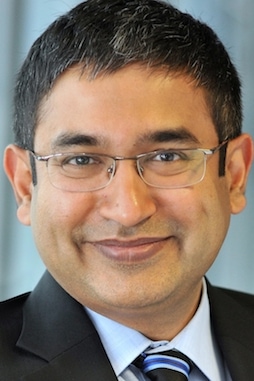
HSBC: www.hsbc.com
HSBC offers subcustody services in all six of the Gulf Cooperation Council countries, as well as Egypt, Lebanon and Palestine. The bank is the longest-established international subcustodian in the region. “We introduced the concept of subcustody in the Middle East,” says Arindam Das, regional head of Middle East and North Africa at HSBC Securities Services. “As the level of due diligence has intensified, HSBC has demonstrated the ability to meet the requirements, thanks to our local presence and in-depth market knowledge.”
Last year marked a turning point for equity markets in the region, Das says. The Dubai Financial Market’s index doubled in value in 2013. Global index provider MSCI upgraded its United Arab Emirates and Qatar indexes from frontier markets to emerging markets, effective at the end of May 2014. HSBC’s subcustody volume in the two markets has increased manyfold since the announcement of the upgrade, Das says.
Standard Bank provides custody and related services in 15 countries in Africa, serving both local clients and international investors. “As the frontier markets of sub-Saharan Africa develop and attract more investors, the requirements of administering those investments are growing rapidly,” says Mark Kerns, global head of investor services. “Our strategy is to have the broadest market coverage and the deepest solution set,” he says.
The Johannesburg-based bank plans to begin offering securities lending in Nigeria in the next few months. In general, sovereign-debt markets have developed sooner than equity markets in the region. “Each country is different,” Kerns says. “Many have foreign exchange restrictions and various settlement time frames.”
As African pension systems further develop, Standard Bank aims to support their end-to-end requirements. “We are all about Africa and connectivity,” Kerns says. “We can serve a pension fund in South Africa, Kenya or Botswana with its local market needs—and also serve it as it goes cross-border with its investments.”
